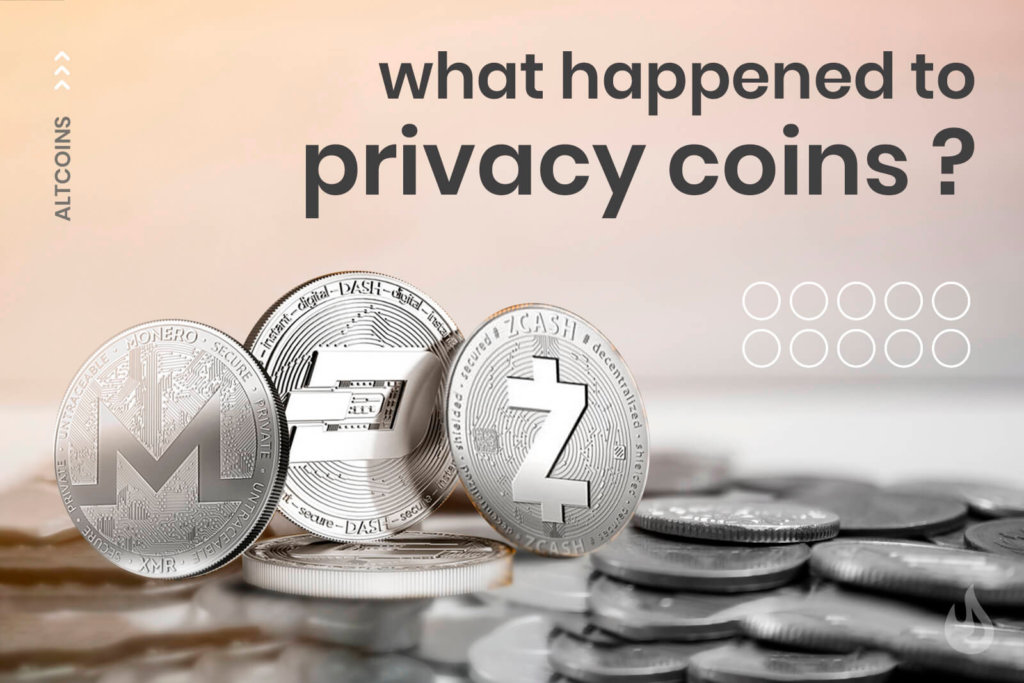- Privacy coins are special cryptocurrencies that guarantee total anonymity during blockchain transactions.
- Cryptocurrencies like Monero, Dash, Zcash, Verge and Bitcoin private are among the leading assets in this class.
- Privacy coins are currently facing delistings around the world as a result of regulatory pressure on crypto exchanges.
What Happened to Privacy Coins?
2
0

Privacy coins are coins that let users gain total anonymity during blockchain transactions. The origins and the parties in the transactions are completely untraceable.
Around the world, there are 63 privacy coins being traded today, but the future does not look bright for private tokens as they currently face delistings from top cryptocurrency exchanges around the world. The Shapeshift exchange recently announced that it has delisted Monero, Zcash, and Dash while Bithumb also delisted Monero.
The rise of regulatory pressure from authorities is the leading cause of the travails faced by privacy coins.
Privacy Coins: The New Digital Pariah
Delisting of privacy coins has become a worldwide trend with several cryptocurrency exchanges removing these coins from their platforms. When Shapeshift, a Colorado-based cryptocurrency exchange, delisted Zcash, Monero, and Dash from its platform, Chief Legal Officer Veronica McGregor explained in an interview with Coindesk, “We’ve taken down the privacy coins because of regulatory concerns.
Following Shapeshift’s lead, the Netherlands-based cryptocurrency exchange LiteBit announced that it will be delisting the privacy coin Firo. In another similar development, Bittrex announced to its users that it was delisting the privacy coins Monero, Dash, and Zcash.
The exchange provided users a 30-day window to withdraw delisted tokens.
In response, Dash argued that it is not a privacy coin and its “privacy functionality is no greater than Bitcoin’s, making the label of privacy coin a misnomer for Dash.” Dash was formerly called Darkcoin, and its selling point was the total anonymity it offered users.
The delisting by Bittrex is another big blow for privacy coins that once held great promise for the future of cryptocurrencies.
On the Flipside
- Despite the mass delisting of privacy coins on crypto exchanges, some of them have continued to perform well in the market.
- Cardano continues its steady rise amid falling crypto prices, enjoying a 15% increase over the last seven days.
- And privacy coin Monero also continues to climb irrespective of its delisting, up 3.49% over the last 24 hours now means it trades at $214.44.
Reasons for Delistings
These privacy features are in conflict with pre-existing anti-money-laundering laws and “know your client” (KYC) regulations.
Money laundering is a major challenge around the world, and regulators clearly believe that bans and the delisting of privacy coins are their best weapons to combat this scourge.
In Japan, authorities argue the delisting of privacy coins is a move to prevent a repeat of the 2018 Coincheck hack, but several analysts argue that privacy coins are unfairly being blamed for the hack. In South Korea, a financial action task force recently imposed new regulations that included delisting of privacy coins.
However, all hope is not lost for privacy coins as Perkins Coie, a US-based law firm, released a report on how privacy coins can become compliant with anti-money laundering regulations.
2
0







